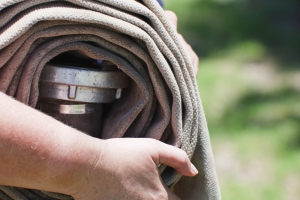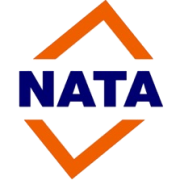Tag Archive for: legionella
Legionella Risks in Australia as a whole?
/in Legionella News
Many of you have heard about the requirement for Health (hospitals and day hospitals) and aged care in Queensland requiring a Water Risk Management Plan. You may be in a situation where you don’t reside in the sunshine state or you have facilities outside of Queensland and you don’t know whether you should have a Water Risk Management Plan or whether you should be actively doing something about risk.
Well the answer to that is YES you should be doing something.
Why? Let me give you a few reasons.
Legionella just doesn’t stop at the border it is endemic to all water sources and therefore any man made water systems are at risk to Legionella. In every state and territory we have an OHS Act requiring a workplace safe from risk or harm.
In every state in
If you would like assistance in developing a Water Risk Management plan for a facility of yours whether it is inside QLD or elsewhere in Australia or just to be pointed in the right direction. Call Jonathan Mutch now on 0429431709 or send through a message here.
Fire Safety & Legionella
/in Legionella NewsI was onsite last week at an aged care facility speaking to the Facility Manager, where I was providing some information on Water Risk Management Plans and Legionella in general. Let’s call him Brian for the ease of telling this story. Brian asked me about the water in his sprinkler system as he explained that the Fire Safety company had been out last month to do the annual safety check.
I explained to him that YES! the water would pose a risk because it meets the three main criteria for Legionella risk.
- Stagnation
- Temperature
- Aerosol
But what is the bigger risk? Burning to death or contracting Legionella? I also explained that it should ideally be a separate closed system and that if separate it shouldn’t pose a risk to the rest of the facilities water distribution system. Generally, on the annual safety checks for the sprinkler systems, there is a Legionella check that should be done.
But what is the bigger risk? Burning to death or contracting Legionella?
Brian from his office chair pointed to the fire sprinkler system and pointed out the tap and outlet to me and told me the fire safety company flushed the sprinkler system, what annoyed him the most is they just turned the tap on and water just shot out and covered one of the administration staff cars that was parked a few meters away in “Black S**t, that washed off eventually” in his words.

I informed Brian that wasn’t good, as that water, the chances of probability that it would contain Legionella (as that water hadn’t been changed since the last annual check) and could drift into the air-intake outlets for the air-conditioning system for the facility and pose a threat to all his clients.
I explained to Brian that to minimise the risk of Legionella from the flush of the sprinkler system, that the fire safety company should put a hose on the outlet and let it go to drain to minimise any aerosol. Brian was thankful for the advice and made a note to ensure the fire safety company was informed of what would be required at the next annual fire safety check.
So the message of the story is when your annual safety inspection comes up your facilities sprinkler system, ask the fire safety company who is carrying out the work that are they aware of the risk of Legionella to clients and what steps are they taking to minimise that risk and if they can’t tell you, you can tell them they need to minimise the spray /aerosol and that they have to fit a hose to the outlet where they are going to flush the sprinkler system.

If you need advice on Legionella Risk management call Andrew or Jonathan on 0429 431 709 or go to our website www.compliancewaterservices.com.au and send us a message.
Why you need an Independent Audit for Cooling Tower Management
/in Legionella News
Undertaking an audit of your cooling tower system can assist in highlighting areas which maybe lacking as part of the site risk management plan. These may even hint to weaknesses in the entire system. Perhaps you get repeat high microbiological results or issues with water chemistry such as scaling or excessive water loss.
With increased scrutiny and more perceived responsibility, you can be assured that standards remain high and there is a trustworthy paper trail which you could rely on if ever needed. Impartial audits ensure that there are no hidden motives at work. Imagine scrambling for paperwork during a retrospective site investigation and finding there are gaps or questionable information on the reports?
Errors which have been over looked can be caught by the independent auditor, if you are a building manager or a member of a body corporate and cannot easily understand the results, can you truly sign off reports with confidence, if you find it difficult for you to differentiate between consistency or anomalies? Would you know if your cooling tower meets its key performance indicators set out by the risk management plan?
An annual Cooling Tower Audit helps to estimate the effectiveness of the water treatment in use and is a system of continuous improvement which can help to eliminate foreseeable issues from occurring.
If you have concerns and questions about your current cooling tower regime and feel you would like an overview, please feel free to contact:- Andrew – 0429 431 709
Age Factor & Legionella Within Health Facilities
/in Legionella NewsThis article will briefly examine why age care and hospitals are of concern when looking at the control of Legionnaires’ Disease.
Legionella affects all water systems and potable water supplies.
Age care facilities are a high-risk group in terms of Legionella infections. Those of an increased age group tend to be predisposed to severe infections which can prove to be fatal. Historic data on patients that have presented with Legionellosis shows that the number of infections increase once over the age of 45.
Below is a graph taken from notifications of Legionnaires’ Disease, Australia’s notifiable diseases status, 2010: Annual report of the National Notifiable Diseases Surveillance System.

Looking at the risk involved with hospitals and clinics, patients may have underlying illnesses making them susceptible to Legionnaires’ Disease. Large hospitals tend to have extensive water systems which have undergone retrofits leaving dead ends. When you think about it, there can be multiple sinks, toilets or showers which may not always be in use, that can stagnate leading to the growth of Legionella. There are inconsistencies in the temperatures of water as it makes its journey around the building. There may be warm water systems which reduce the risk of scalding but have an unfortunate prerequisite to Legionella as they sit in the temperature range of 35 – 42℃.
Queensland has recently implemented legislation which is creating some epidemiological information, showing how widespread Legionella presence is among public and private facilities:-
“For the period 1 February to 30 June 2017, 273 public and private facilities reported a total of:
- 14,259 water samples collected and tested for Legionella; and
- 753 Legionella detections reported to Queensland Health.”
These statistics translate into a 5.3% likelihood or 1 in 19 chance of a positive result from water testing.
These statistics could be greatly reduced by identifying problem areas on site and using a suitable control to reduce the likelihood of Legionella growth. One way to achieve this is through a site survey to examine all possibilities. Focus should be site wide without becoming fixated on only the most high risk causes.
In Australia, the age care sector is projected to be an expanding demographic and with it, increased demand on health services. Taking proactive steps to examine your individual Legionella risks on site provides protection to clients and your business.
As an experienced, Queensland based company contact Compliance Water Services if you are a licensee or an approved provider and you have concerns about your current situation.
We can be found at: www.compliancewaterservices.com.au
Sources
http://www.health.gov.au/internet/main/publishing.nsf/content/cda-cdi3601a12.htm
Our location
Head Office
70 Beverley Hill Street
MOOROOKA QLD 4105
Australia
t: 0429 431 709
Postal Address
PO BOX 208,
SALISBURY QLD 4107
Opening hours
Mo-Fr: 8am-5pm
Sa-Su: Closed

